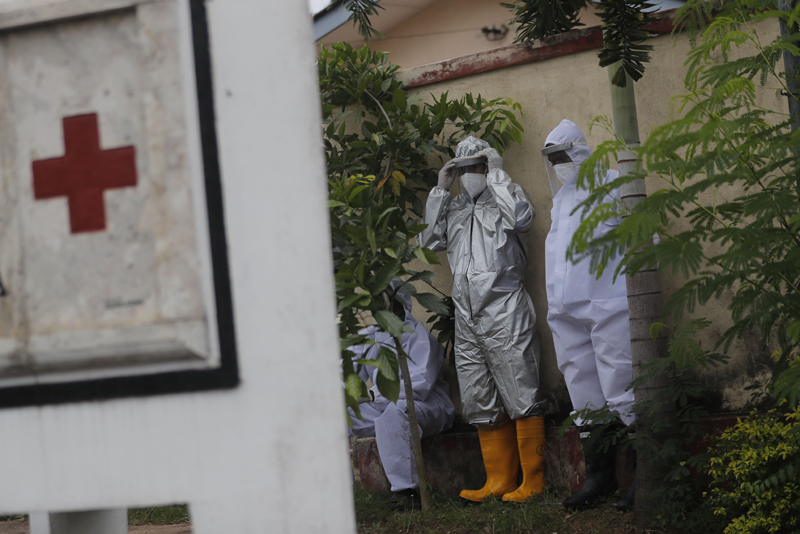Asia Today: Sri Lanka bans public gatherings amid sharp rise
COLOMBO, SRI LANKA: Sri Lankan authorities have banned all public gatherings as a new cluster of COVID-19 expands in the Indian Ocean island nation.
Health authorities said early Wednesday the outbreak centered at a garment factory has risen to 830 confirmed infections while more than 1,000 people have been asked to quarantine at their homes.
The health ministry ordered the public not to conduct public gatherings such as exhibitions, parties, conferences, indoor or outdoor events, carnivals, musical shows and processions.
The majority of the infected people are co-workers at a garment factory. The government has also widened a curfew in two suburbs of Colombo where many of the patients live. It earlier closed schools and universities and imposed restrictions on public transport.
The country has reported 3,733 patients with 13 deaths. Of the total patients, 3,266 have recovered.
In other developments from the Asia-Pacific region:
— India has registered more than 72,000 new coronavirus cases, driving the country's total to 6.75 million. The Health Ministry also reported 986 deaths, taking the toll past 104,500. Nearly 10 states account for 77% of the total active cases in the country. India's recovery rate stands at more than 84%. The government has cited that figure as a reason for further opening the economy by allowing movie theatres to partially reopen next week with 50% capacity. The health ministry also issued guidelines for large gatherings during upcoming religious festivals and barred people from touching idols and holy books at such events to prevent the spread of the virus.
— New Zealand has again eliminated COVID-19 in the community as life is about to return normal in its largest city, Auckland. From midnight Wednesday, limits on public gatherings and activities will be lifted, though social distancing is advised. The Ministry of Health said the last six active cases associated with a minor outbreak in Auckland have recovered, an announcement that Health Minister Chris Hipkins described as a big milestone. "New Zealanders have once again through their collective actions squashed the virus," Hipkins said. New Zealand went 102 days without a case of community transmission before the Auckland outbreak, which concluded with 186 cases between Aug. 11 and Sept. 25. Three new cases were reported Wednesday in people quarantined after traveling overseas, bringing the number of cases in managed isolation or quarantine facilities to 37.
— Australia's economic leader says the country's conservative prime minister and its health minister would not liken coronavirus to influenza as President Donald Trump had done. Treasurer Josh Frydenberg was asked at the National Press Club whether Trump's social media posts that liken COVID-19 to influenza were irresponsible. "Well, you won't see (Prime Minister) Scott Morrison putting out those sort of messages. What Scott Morrison, what (Health Minister) Greg Hunt, what myself and others have always said is that this virus is deadly and it is creating a massive health and economic challenge for us," Frydenberg said. Frydenberg on Tuesday announced a raft of pandemic-relief measures in the budget that would create a record $153 billion deficit in the current fiscal year.
— South Korea has reported 114 new cases of the coronavirus, its first daily jump of over 100 in a week. Health officials had raised concerns that infections would rise because of increased travel during the Chuseok harvest holiday that ended Sunday. Ninety-two of the cases reported Wednesday by the Korea Disease Control and Prevention Agency were from the Seoul metropolitan area, where the virus has been resurgent since mid-August. Health officials have been struggling to track transmissions linked to various places, including an army unit in Pocheon, where 37 troops so far have tested positive.






